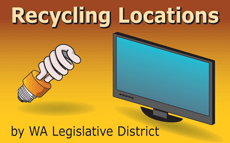On Wishcycling and Responsibility
In the journal Discard Studies, Feb. 15, 2021, Rebecca Altman writes on the origins of the term "wishcycling" and concludes that "individualization shifts attention and agency for issues from industry and systems to individuals and their knowledge and habits."
"Indeed, plastic bags, while technically recyclable, often are not recycled. Further, the distribution of buyers and markets is uneven, which is why recycling programs are regionally-specific and ever-shifting... For plastics, recycling hasn’t diminished plastics production, which has continued to rise. It hasn’t necessarily lessened fossil fuel extraction either... Let’s say more Americans recycled their plastics, and this resulted in an influx of more recycled plastic onto the market. Even with robust closed loops achieved, does anyone really think that the executives at one of these multinationals would get to the point of saying, 'well, you know, it’s good that the need for input materials is being met by recycled plastic… that means that this year we can scale back production a bit.'
Indeed, according to the International Energy Agency, as of 2018, the plastics industry is banking on growing plastics and petrochemicals production to sustain future growth in oil and gas production. In fact, the IEA reports, as energy and transit systems shift toward renewables, petrochemicals and plastics “are rapidly becoming the largest driver of global oil consumption.”"
